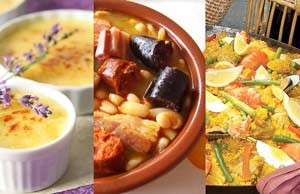Even everyday actions can reveal much about our attitudes, culture, and more as the following proverb shows:

“Xoi com thi xoi long ta
So dua thi phai so ra long nguoi”
It translates roughly as:
“Scoop up rice [to serve guests], we must scoop up our hearts
Pair chopsticks, we must pair people’s hearts”
The famous poet Xuan Dieu said this proverb was strange and hard to understand but a closer scrutiny disclosed a hidden beauty. During a talk on poems many years ago, he repeatedly invoked this saying, describing it as one of the best oral treasures of the Vietnamese. The more we ponder the proverb, the more meanings pop up.
Why should we and what do we mean by “scoop up our hearts”? Xuan Dieu explained it thus: “Rural northerners mostly cook rice using straw and wood. Rice cooked in this way is very sweet and tasty but connoisseurs know about the three different layers of textures and tastes within the pot. On top the rice will be soft and soggy, at the bottom it tends to be burnt and crusty, while only in the middle is it evenly cooked and glutinous, and, thus, extremely desirable.”
The proverb implies that hosts should scoop up (let out) their hearts when serving rice to guests. Since the top portion is not flavorful they should keep it for themselves, serving the middle portion to guests or other respected figures at the table.
Another aspect is the Vietnamese’s moderation in eating and drinking. The saying “com ba bat, ao ba manh” (have three bowls of rice per meal and wear a garment made of only three pieces at a time) testifies to this. Thus, we should serve guests as much food as we intend to eat ourselves (scooping rice is tantamount to scooping out our hearts or our affection for guests). This is after all a courtesy practiced by the Vietnamese people for millennia. It also denotes moderation in serving food -- not too much, not too little. You might anger guests by serving too little and embarrass them with too much.

But why should we “pair people’s hearts” when pairing chopsticks?
For Westerners not familiar with the concept, chopsticks in the past tended to be uneven and so two similar ones have be selected and “paired”, a crucial process before every meal.
The Vietnamese say, “Vo dai khong hai bang dua venh” (a silly wife is not as dangerous as a pair of uneven chopsticks).
When pairing chopsticks, we must “pair people’s hearts”, meaning show our affection for the guests by choosing the most perfect pair. The host can have the non-matching ones.
Although today’s technology has made the need to pair chopsticks redundant, the proverb has lost none of its significance.
Our ancestors succeeded in investing significance in mundane daily activities to create wise proverbs.
An act may be inconspicuous or routine but not its implications.
























